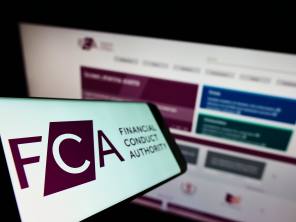

The Financial Conduct Authority’s chief executive officer has said the regulator is still learning about how to deal with digital entrants to financial services but its work would be made easier by tighter legislation.
Speaking at Global Counsel’s event yesterday (July 14), Nikhil Rathi was asked if the FCA had the framework and firepower to properly regulate digital entrants to the market.
He said: “Where big tech firms enter financial services they must meet applicable standards but we are also learning. Where we need to update frameworks, we will, for instance in cloud services.
“We're taking a fairly sensible approach in the UK but I certainly think we've been very clear that we think online advertising should be in the online safety bill, we think some legislative ballast behind us on that particular issue would make a significant difference, but it is a matter now for the government and parliament to decide.”
The government has been urged to force internet giants to stop investment fraud facilitated through online advertisements as part of its Online Safety bill.
But it has rejected the idea and instead said there would be a consultation on online advertising regulation later in the year.
Rathi appeared alongside the Competition and Market Authority’s chief executive Andrea Coscelli, information commissioner Elizabeth Denham, and Melanie Dawes, chief executive at Ofcom.
Earlier this year in April, the FCA joined the Digital Regulation Cooperation Forum (DRCF) which was formed by ICO and Ofcom last year to ensure greater cooperation on online regulatory matters and platforms. Previously the FCA had been an observer member.
Discussing joining the DRCF initiative, Rathi said: “There is an epidemic of fraud online, scamming consumers, often vulnerable consumers out of substantial portions of their life savings. We've seen fraud is now the most reported crime in the country, and the major vector for that fraud is online.
“We started on this journey, and seek to call it out and engage with the major platforms to encourage them to change their policies.
“The speed with which digital technology is changing our sector necessitates regulatory collaboration. Digital economic crime is a serious problem, which has grown during the pandemic. We must share information, tools and services to deal with these challenges.”
During the panel, Rathi also said he believes regulation to tackle online scams will require both a specific approach to the regulation of artificial intelligence, as well as a 'horizontal approach' across the UK.
He said: “Certainly some horizontal principles will apply and we are doing work with the Bank of England, with Elizabeth and the team at the Information Commissioner's Office where artificial intelligence applies right across the economy.
“At the same time, we need to recognise that technology is used differently in different sectors and we have a highly consumer facing sector and there are different harms that can be created, for example when AI is used in pricing consumer lending or pricing certain types of insurance products.”
He added: “We're consulting right now on a duty of care for consumers which was something that was requested of us in recent legislation. We need to make sure that it is a very digitally savvy consultation to make sure that the principles that we establish coming out of that cater for these new technologies.”
Speaking on the DRCF initiative, Denham explained it was created because of the “real-word challenges” faced right now, such as disinformation, child safety and online trolling.
Denham said she expected other regulators, such as the Advertising Standards Authority, to join in due course.
She said: “We’ve collaborated before but our digital environment is more complex than ever before so we must regulate in ways we have not before. We cannot lag behind these challenges
“As digital regulators, we needed to innovate in ways we have not before by integrating our approaches. We needed a more formal and systematic channel to integrate our work to protect citizens and reassure business.”
sonia.rach@ft.com
What do you think about the issues raised by this story? Email us on FTAletters@ft.com to let us know



